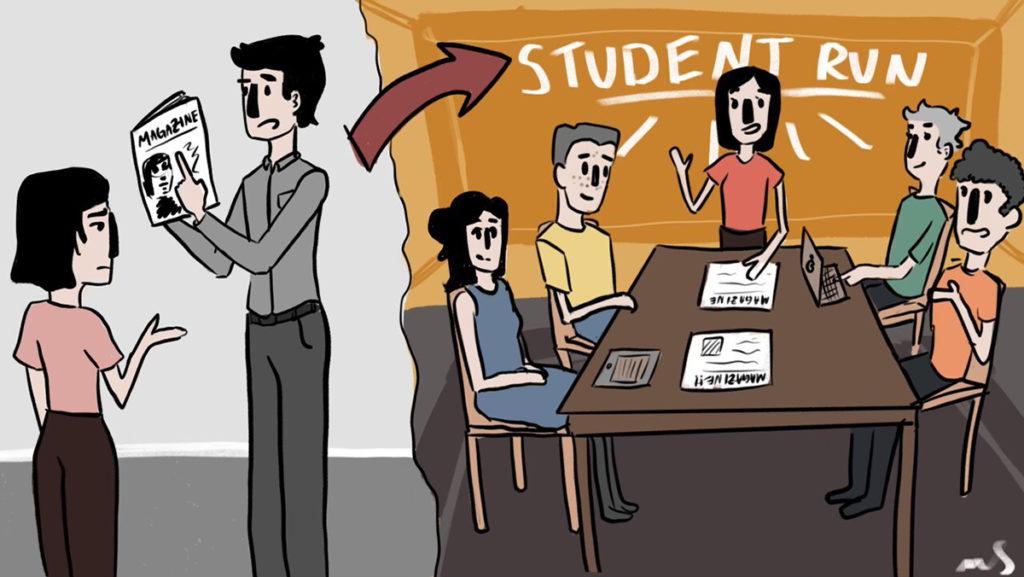As student-run publications return to printing on campus, the importance of having independent outlets for students to express their creativity and learn real-world skills has become more obvious than ever.
On-campus publications are essential for the students involved. They provide an outlet for creativity and a platform for students’ voices. Creativity and passion are arguably two of the most important factors that drive students. When a student chooses to attend college or pursue higher education they do so hoping to follow their passions and cultivate their skills for the real world.
Literary magazines like Stillwater provide an outlet for creative writing students to gain experience and build their prose. Students who want to write poetry or short stories shouldn’t be limited to only writing in a classroom for a grade. This is how passions are lost and replaced by the autopilot writing of every academic student. These students choose to write and they do it for themselves and to share their passion with the community.
Student publications like Buzzsaw Magazine, Embrace Publication, Passion Project and Distinct Magazine allow for individual expression to thrive and flourish, and for students to gain journalistic experience. These publications are of the utmost importance for journalism students who need to gain valuable experience they may not otherwise receive in a classroom in the Roy H. Park School of Communications.
While classrooms help cultivate students’ understanding of the history and theory of journalism, it cannot hold a candle to the actual experience of a newsroom, or what it is like to put together a magazine. A professor can tell their students about journalistic standards, and how an article is properly written, but there is nothing like reporting on serious issues or seeing one’s own writing in the pages of a glossy magazine.
In a classroom, a student cannot understand the pressure of deadlines or the importance of what is written. In a classroom, students receive a low grade and move on, but in a publication, the mistakes have real-world implications. When a mistake is made — as they inevitably will be — it is a learning experience so the next publication is better.
In a classroom, the way students learn relies solely on the proficiency of the professor and whether those professors are teaching the techniques that students need to thrive. However, there are certain skills that can only be taught through hands-on experience. Because students are not always receiving this experience in classrooms, student-run publications allow these students to gain a valuable skill set they can apply to real-world jobs.














